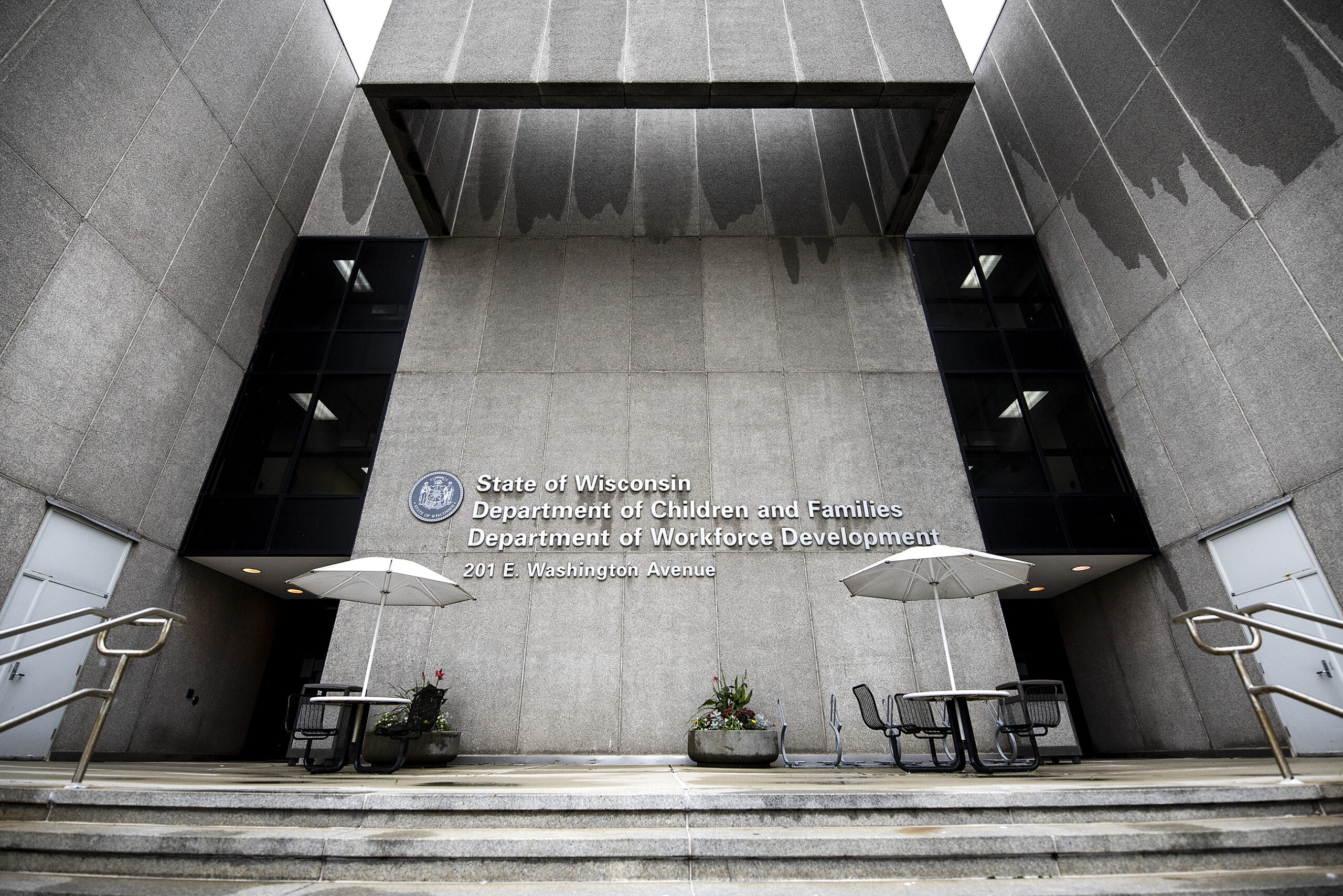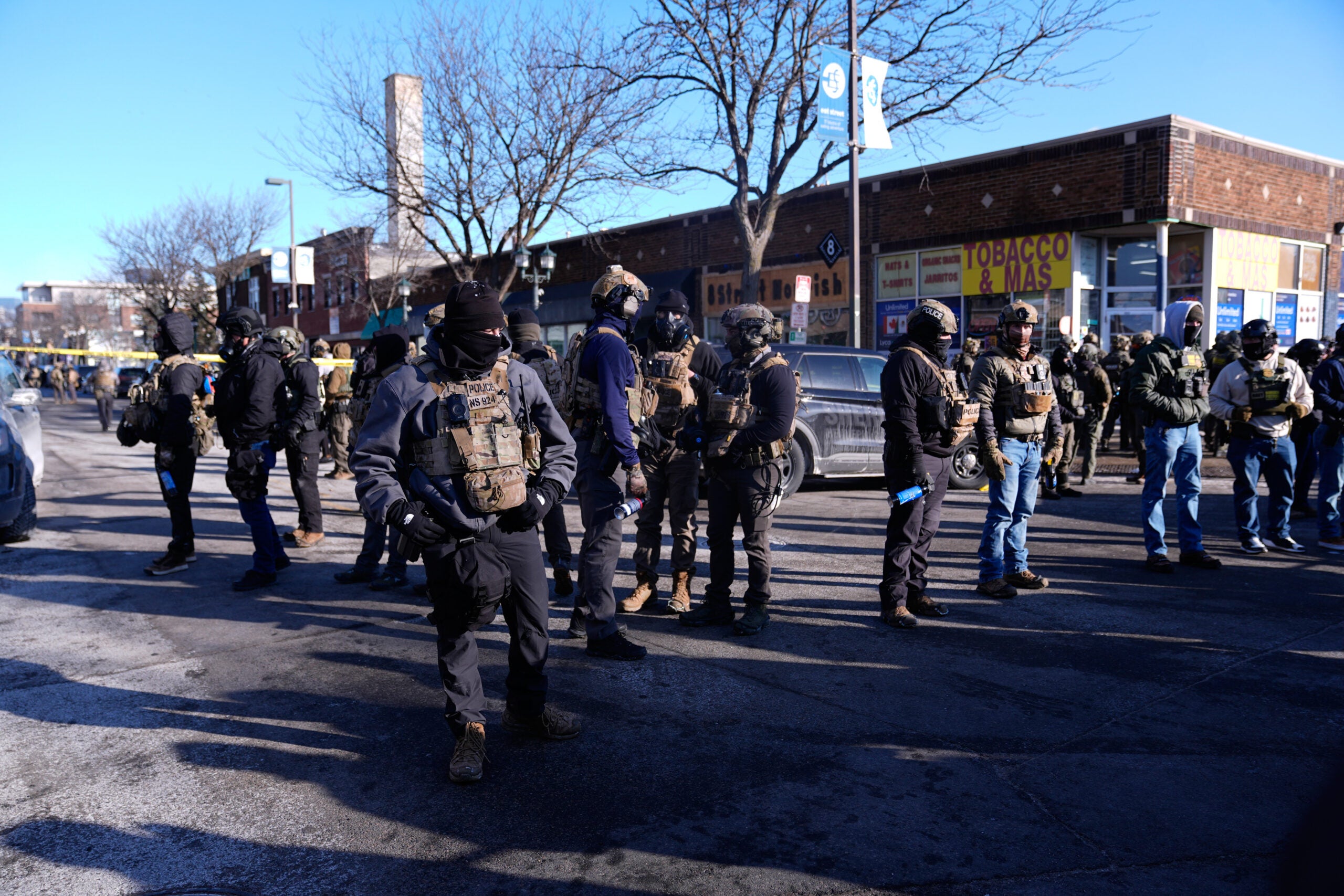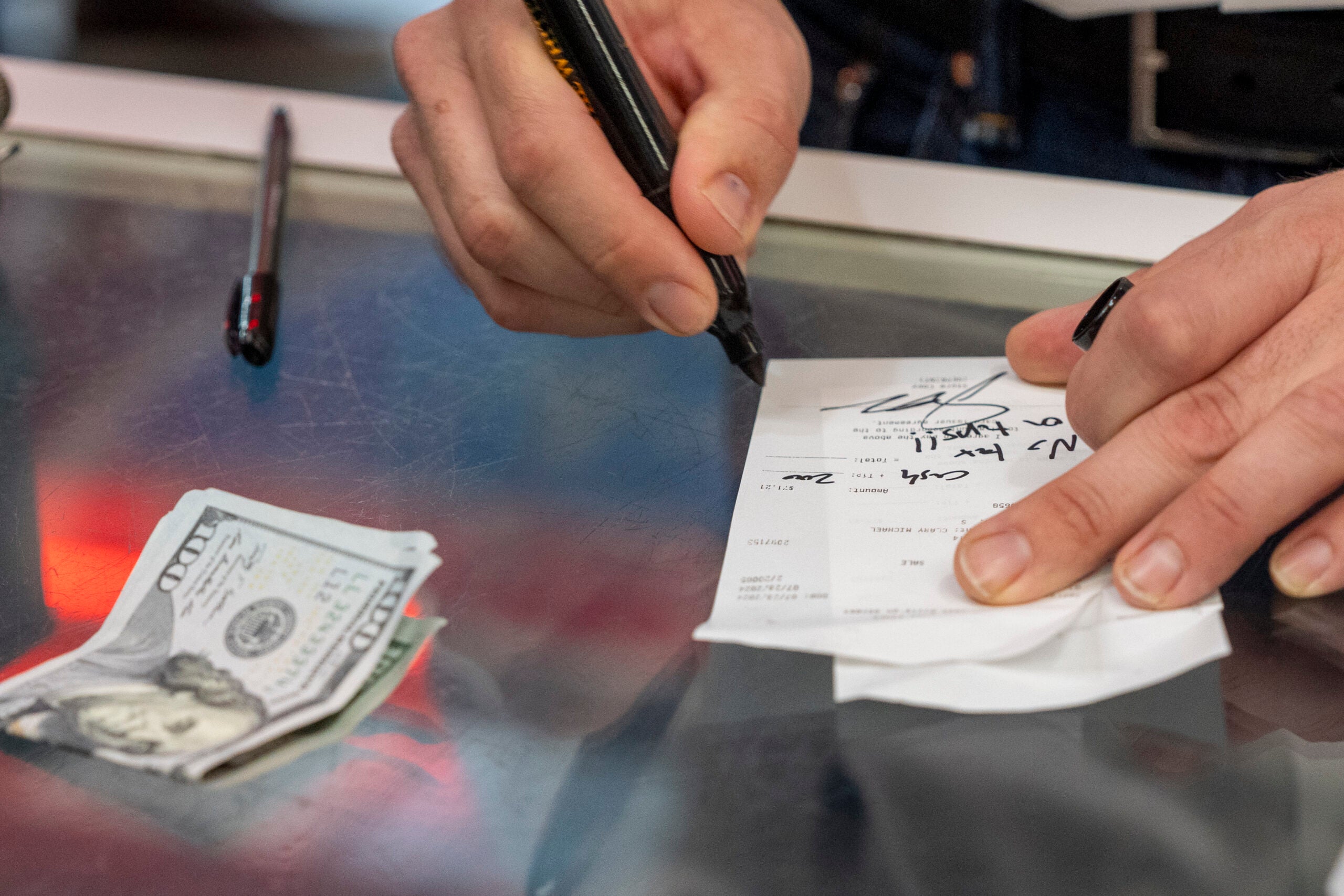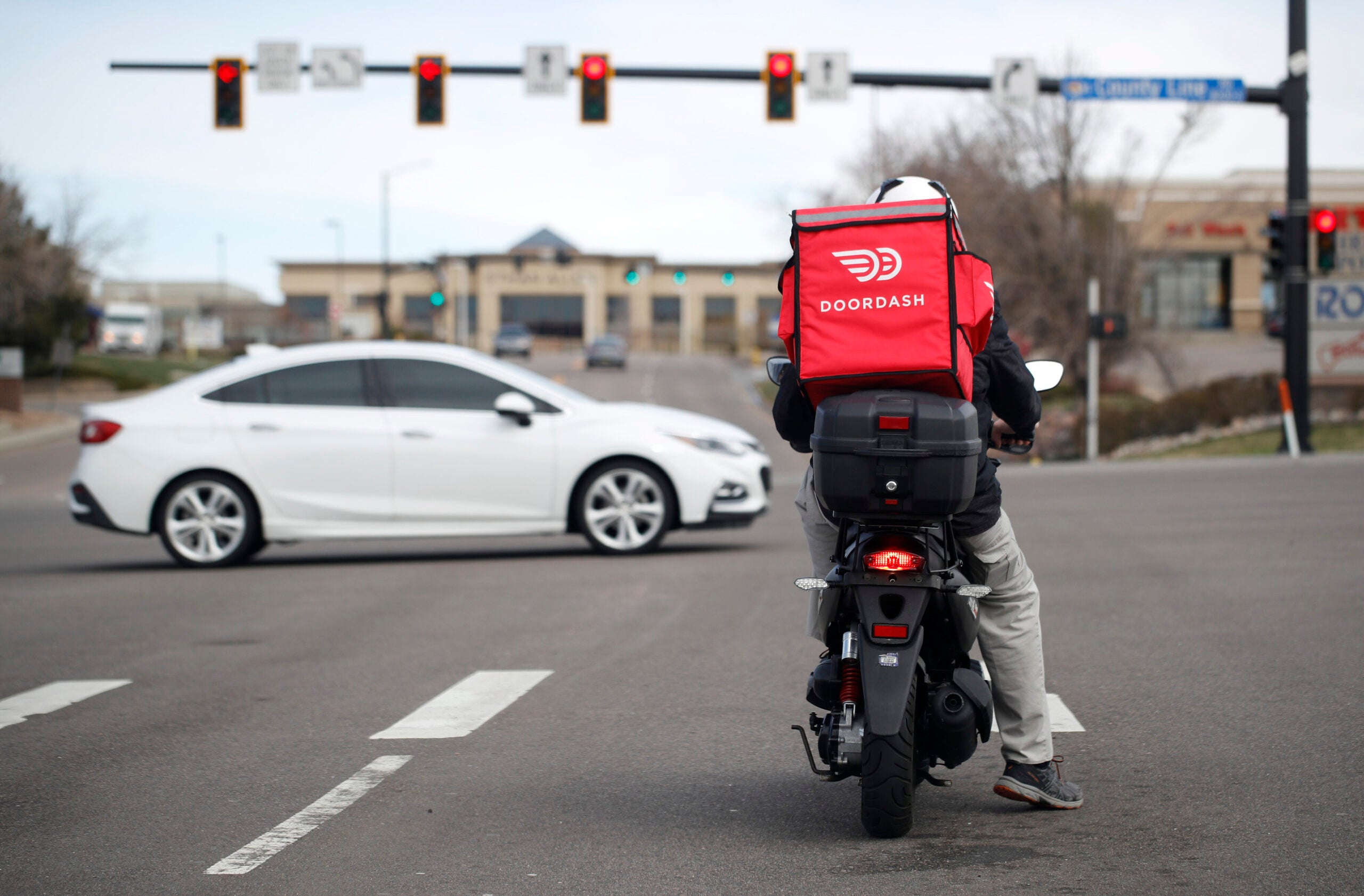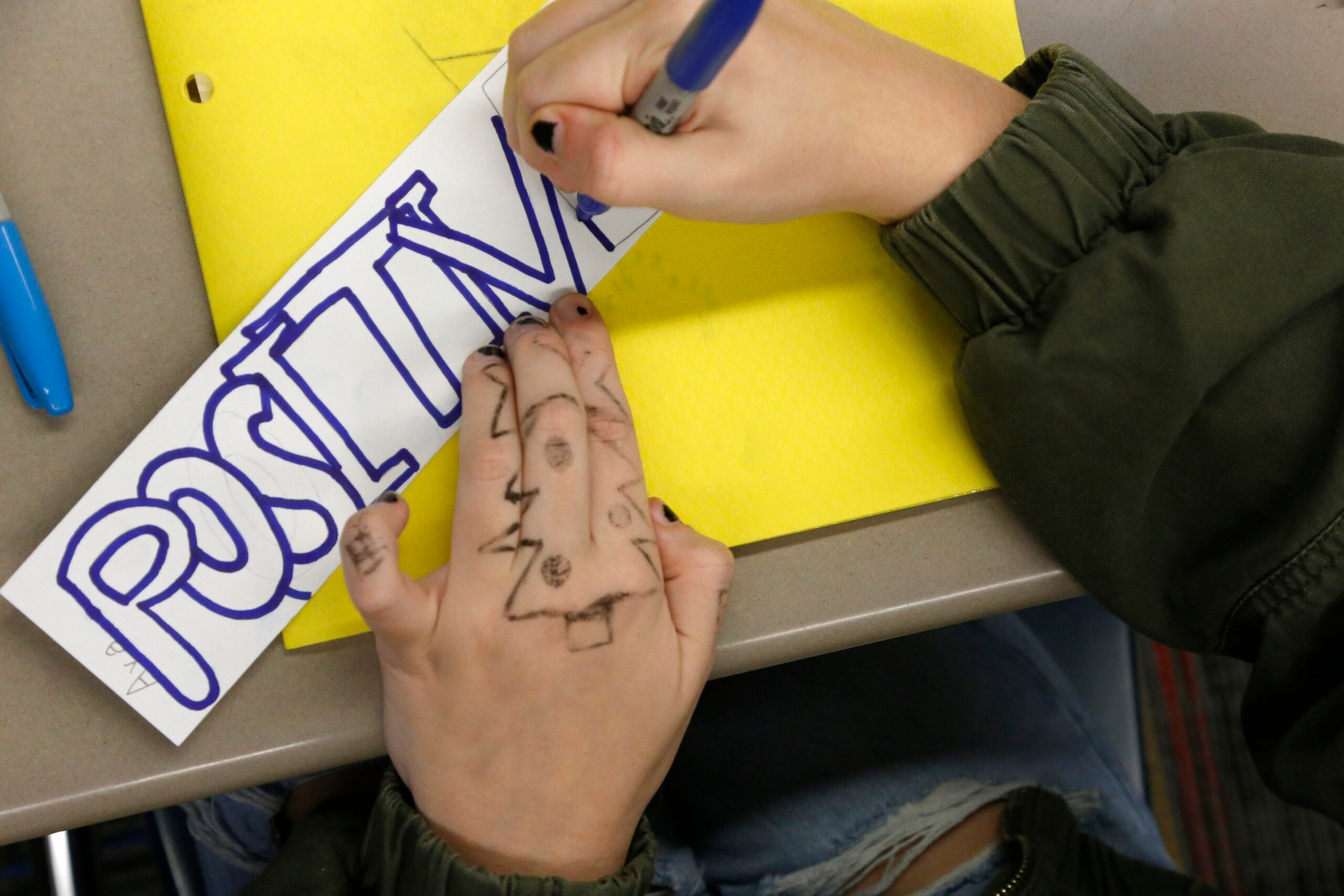Three GOP state lawmakers are circulating a proposal that would eliminate work permits for Wisconsin’s 14- and 15-year-old job seekers.
The proposal comes during a national push to loosen regulations governing what jobs minors can perform in the workplace. It faces opposition from statewide labor groups like the Wisconsin AFL-CIO.
Wisconsin requires anyone under 16 to obtain a work permit for jobs outside of agriculture and domestic service work. Children must be at least 14 to work. The process for obtaining a permit requires teens to receive a job offer, and their parents to apply for a work permit with the state Department of Workforce Development. The permit costs $10.
News with a little more humanity
WPR’s “Wisconsin Today” newsletter keeps you connected to the state you love without feeling overwhelmed. No paywall. No agenda. No corporate filter.
State Sen. Cory Tomczyk, R-Mosinee, Rep. Clint Moses, R-Menomonie, and Rep. Amy Binsfeld, R-Sheboygan, say that process creates too much “red tape” for young people joining the labor force. They sent a memo to fellow legislators on Aug. 18 seeking cosponsors for a bill to eliminate work permits.
“This legislation makes it easier for our young people to enter the workforce voluntarily to explore career opportunities and establish a good work ethic,” Moses said in a statement.
In the memo, the lawmakers say the bill eliminates “excessive government regulation” that slows down the hiring process, especially in the leisure and hospitality industry.
Work permits are not required under federal law, and Wisconsin eliminated them for 16- and 17-year-olds in 2017, the lawmakers wrote. They say the bill maintains current restrictions on the types of jobs available to teens and the number of hours they can work. The authors also said the bill would not affect school attendance requirements or employers’ recordkeeping responsibilities.
In a statement, Tomczyk said it’s not the government’s duty to “say who can or cannot work” and the decision should be left to parents.
“We need to motivate Wisconsin’s youth to work and prepare themselves for the real world,” he said. “Everyone who wants to work, should be able to work without the government standing in their way.”
Similarly, Binsfeld said the government shouldn’t stand in the way of teens pursuing interests after school.
“It shouldn’t matter if it is athletics, volunteer work, arts or employment,” she said in a statement. “Let the teen find something that gives them joy and purpose without the added step of bureaucracy.”
AFL-CIO President: ‘This is a dangerous strategy’
The Wisconsin AFL-CIO says the bill rolls back protections for minors in the workplace. Stephanie Bloomingdale, the organization’s president, said she was “shocked” to learn of the proposal last week.
“This is a dangerous strategy, and it should be stopped immediately,” she said. “We understand the value of kids having part-time jobs, learning work ethic and having to learn some skills, but they need to be safe at work and requiring a work permit for kids as young as 14 and 15 is important.”
“What is administrative red tape to one group is a safety measure to another group,” Bloomingdale continued.
Iuscely Flores, racial equity and economic justice advocate for the nonprofit Wisconsin Democracy Campaign, said removing work permits for 14- and 15-year-olds would disproportionately target and affect youth of color.
“Young people will be expected to work to help provide for a lot of their family members, and, typically, the young people that need to work are youth of color,” she said. “They’re in high school, and it would definitely mitigate their chances of achieving higher education after high school because they’ll be so used to being the breadwinners.”
The proposal to eliminate work permits comes after the Wisconsin DWD launched an online work permit application earlier this summer.
The agency says the online application eliminates the need for families to obtain permits at brick-and-mortar locations. Each year, the department says it issues roughly 35,000 work permits for minors.
Proposal comes after GOP bill to extend work hours for teens was vetoed
Although the new bill wouldn’t affect work hour restrictions for minors, a GOP bill introduced in 2021 would have allowed 14- and 15-year-olds to work longer hours. That bill was vetoed by Gov. Tony Evers.
Wisconsin is one of 14 states where lawmakers have proposed rolling back child labor laws over the last two years, according to the Economic Policy Institute. State lawmakers also introduced a bill earlier this year that would allow 14- to 17-year-olds to serve alcohol.
State-level child labor complaints in Wisconsin more than quadrupled from 2018 to 2022, according to the Wisconsin DWD. The agency’s Equal Rights Division received 18 minor employment complaints in 2018 and 86 complaints last year.
Over the same period, the U.S. Labor Department says it’s seen a 69 percent increase nationally in cases of children being illegally employed. In February, a Wisconsin-based sanitation company was fined $1.5 million for employing more than 100 children who federal investigators said were working in dangerous conditions cleaning meat packing plants.
Last month, a 16-year-old boy died from injuries sustained in an industrial accident while working at a sawmill in northern Wisconsin. The Associated Press reported the boy appeared to have been doing work allowed by state child labor laws. But the U.S. Labor Department is investigating possible child labor violations related to the sawmill accident.
Bloomingdale said efforts to roll back protections for minors in the workplace are “outrageous” and measures that have been in place to protect children have helped raise labor standards for all workers.
“It needs to be stopped,” she said. “It’s not only happening here in Wisconsin, it’s happening across the country. And this is a time when kids need to be safe in the workplace.”
Wisconsin Public Radio, © Copyright 2026, Board of Regents of the University of Wisconsin System and Wisconsin Educational Communications Board.

